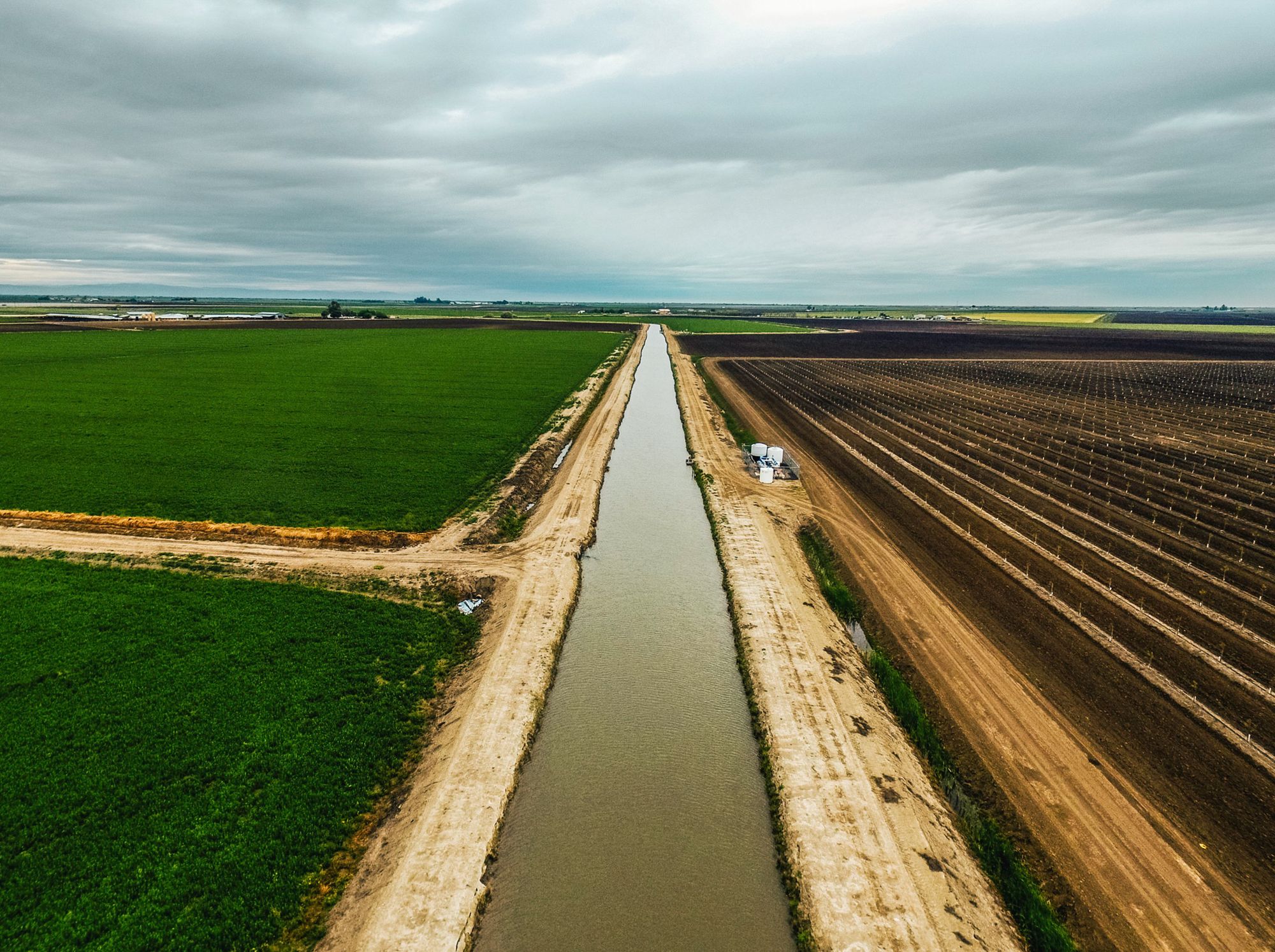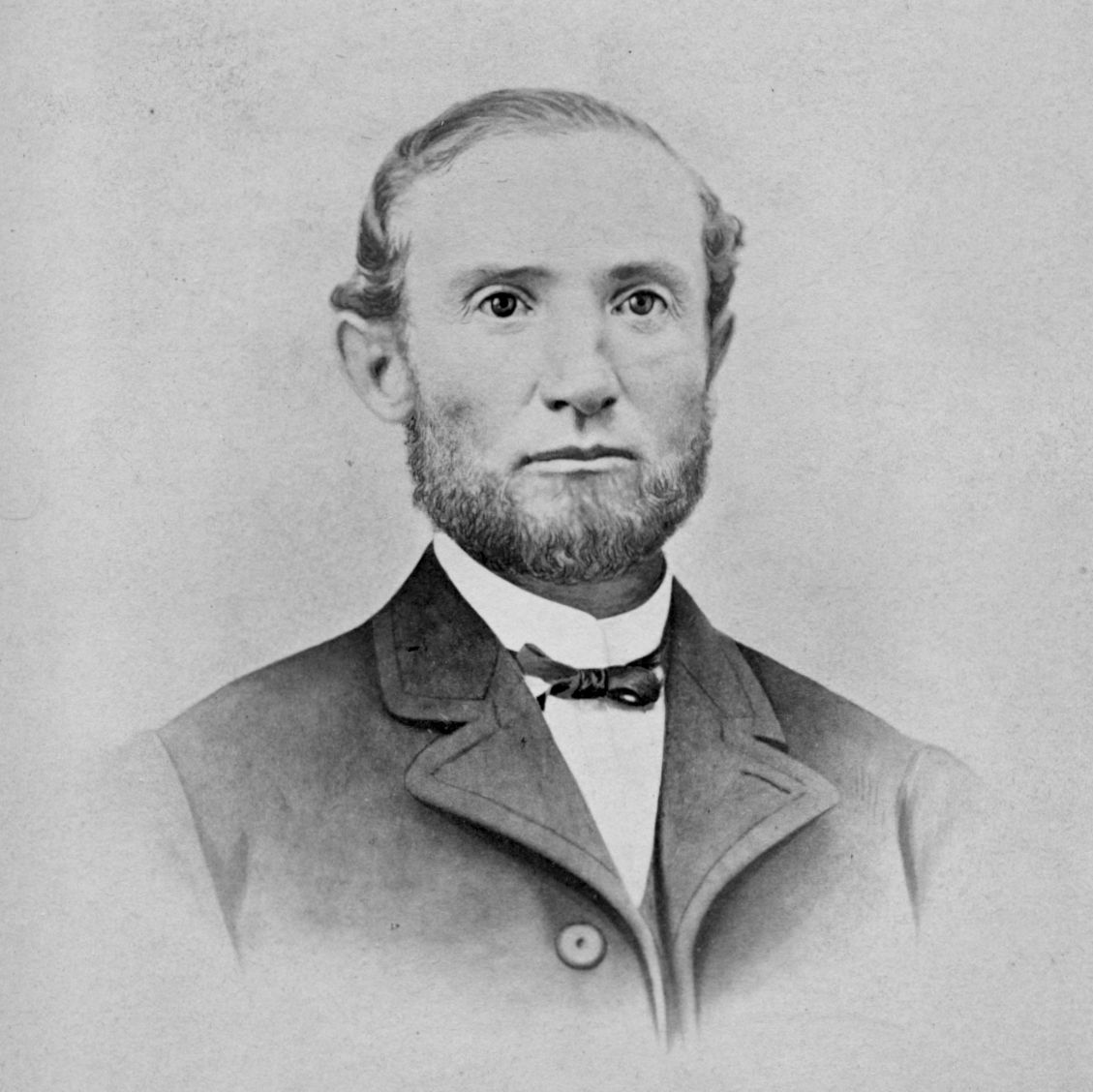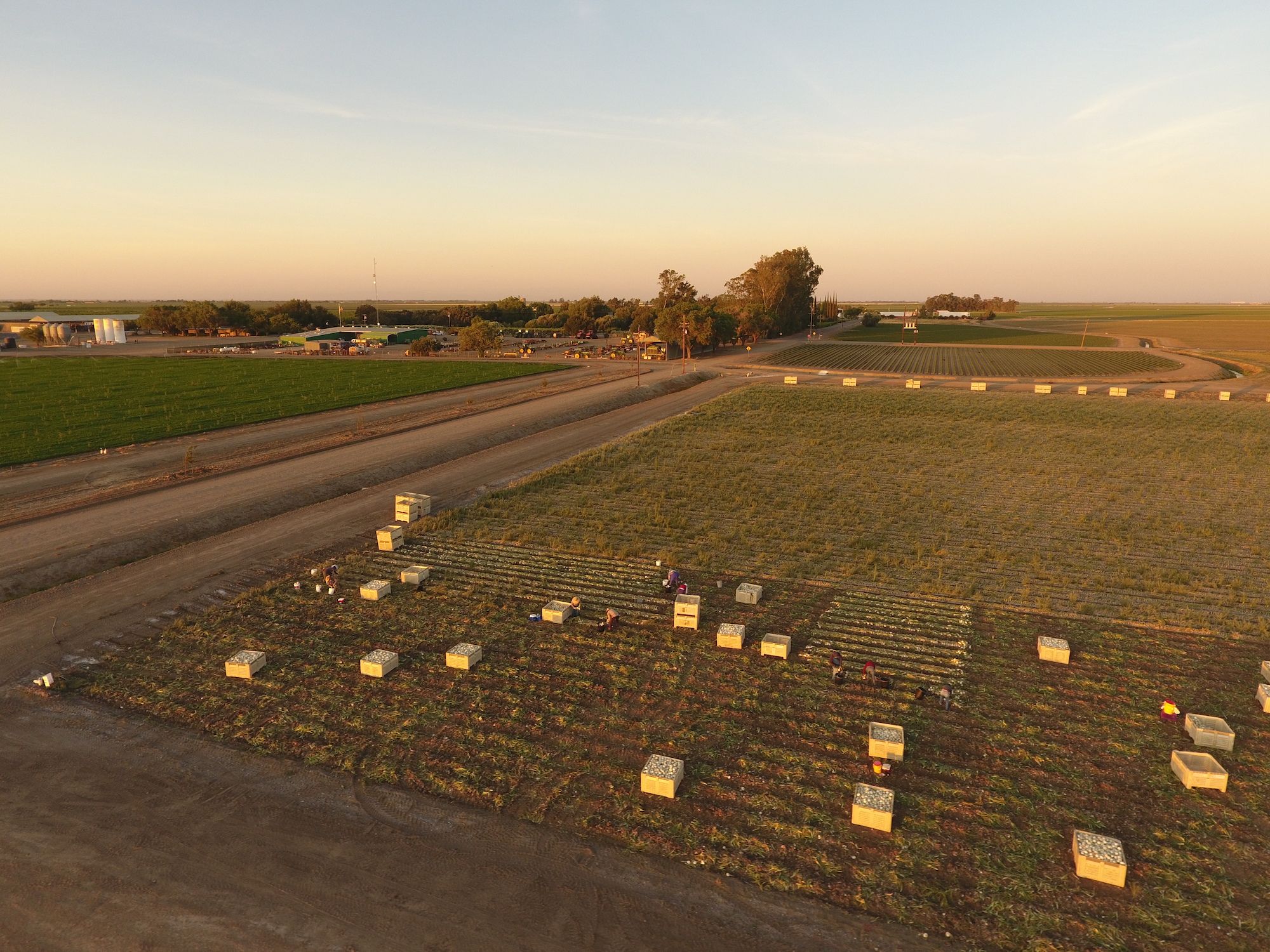When my kids play in the mud at our family's farm in California's Central Valley, they're frolicking in the soil their ancestors have farmed for over 175 years. Their slingshots are fashioned from branches of olive trees planted by their great-great-great-grandparents. They're tied to the land, like I am, through their blood. Someday, God willing, they'll own a piece of it. We are extraordinarily lucky to have a successful family business that has passed through seven generations and survived, even thrived. We've also worked for it.
Farmers, at least good ones, think in broad terms about time. They see the land and its past, present, and future from 10,000 feet, honoring and learning from experience while planning for succession and future generations of abundance. Good farmers temper ambition with conscientious stewardship of the Earth and its resources. Farms that last are no accident — they're built that way, managed, and engineered for the long haul. Patience and foresight are necessary. Intention is king. There is no room for greed, dishonesty, or small-mindedness. Like most things, good fortune and capital can't hurt. While you can't anticipate everything, you can have a set of principles by which you operate and, with any luck, core values you pass from one generation to the next. As my kids laugh and splatter the rich soil gifted by their forefathers, it occurs to me that perpetuating a happy family could be guided by some of the same principles that make for sustaining great farms.

When we think of how to raise our children, we usually consider time on a woefully myopic scale. We worry about what we do that day, week, or month. Sometimes, particularly during a tantrum, we count the minutes. Occasionally, parents will stretch their minds to think of how they're preparing their child for that season or the school year. Rarely do parents endeavor to consider how they raise their children on a macroscopic scale, not just in years but in decades, lifetimes, and generations.
Scientists know that more than your DNA is inherited. Your children, little sponges that they are, soak up every choice you make in terms of behaviors and lessons, both implicit and explicit. Scientists estimate that personalities are somewhere between 30% and 60% heritable. Each generation learns from the last, modeling what they see and modulating what they inherit biologically, culturally, and socially. Epigenetics tells us that which of the inherited genes expressed depends largely on behaviors and the environment. There is no more nature vs. nurture debate — it's both in a delicate feedback loop scientists are just now starting to untangle. Our nature is largely fixed, locked into the 23 pairs of spiraling chromosomes that comprise our genetic material. Nurture is far more malleable. How, then, might we prepare young people to be both good global citizens and admirable stewards of our lineage? How will our choices today affect our descendants in 10, 100, 1,000, or even 10,000 years?
One of the best things you can do is teach a child to cultivate grit, which encourages a growth mindset. Grit is like emotional stamina, passion, and perseverance for long-term goals in the future, despite any adversity. Grit has five primary characteristics: courage, conscientiousness, perseverance, resilience, and passion. Each of these features is noble individually but combined, they can confer success in life. Angela Duckworth, largely considered the world expert on grit, believes it separates the winners and the losers, literally. Grit encourages kids to see they can do difficult things if they persist. These successes, in turn, promote confidence and autonomy while demonstrating the value of hard work. Just as farmers weather bad seasons and failed crops, the focus on the horizon and unwavering persistence are essential. My great-great-great grandfather was the posterboy for grit. He left Germany at 16 with nothing and worked carrying lamb carcasses on his shoulders across town in San Francisco until he saved enough to open his own butcher shop. From there, he bought a few cattle and some land. When he died, he was the largest private land owner in the US. He knew both profound poverty and extreme abundance in his life. In between those polarizing experiences he suffered unfathomable loss and adversity that would have broken most men. It didn’t break Henry Miller.

Research suggests creativity is another essential ingredient for success. Creativity sparks innovation, accelerates and deepens learning and adds meaning and satisfaction to life. It optimally challenges us to explore our imaginations through expression. Additionally, creativity can be immensely joyful and bring people together. Acting creatively encourages open-mindedness, empathy, risk-taking, and critical thinking. It can help manage stress and even aid in treating some forms of mental illness. Good farming requires nimble thinking and unusual solutions to unique problems. This type of divergent thinking, generating new and original solutions to problems, is one of the core components of creativity. Recent research suggests it may not only be good for business but also for your brain. For many reasons, not the least of which is the sheer joy of it, promote creativity at every opportunity.
Cultivate gratitude by acknowledging the goodness around you. Levels of gratitude are consistently strongly correlated with happiness. Gratitude can increase positive emotions, help to relish good experiences, improve health, counter adversity, and build strong relationships. The benefits of gratitude may seem evident to us, but it's important to spell them out explicitly for children, encouraging acts like thank you notes and gratitude lists. Bolster appreciation with other core characteristics like kindness, tolerance, and empathy. Gratitude is closely tied to optimism, an essential trait for any farmer. In agriculture, particularly over the span of 175 years, there are inevitably thick years and there are thin ones. My ancestors that were worth anything were the ones who didn’t let the wins or the losses go to their heads. They kept their eyes on the horizon and realized that that variability is an inherent part of agriculture and of life. They neither lamented their misfortunes on bad years nor squandered their windfalls on good ones. A healthy dose of gratitude and unwavering optimism were essential.
Kindness permeates every aspect of a family. In fact, researchers found that it was the single most important predictor of satisfaction and stability in a marriage. Kindness is not all about doing for others, it is immensely rewarding for the individual as well. Research shows that acts of kindness can boost confidence, happiness, and sense of control of the world around us. It affects levels of empathy, self-esteem, compassion and improves mood. Being kind can even offer neuroprotective factors through reduction of stress hormones like cortisol and boosts of serotonin and dopamine. Every descendant has heard the stories of how Henry Miller was an honest, brilliant and kind man. He took excellent care of his workers, something we are proud to still do today. He gave to the poor, establishing what was known as the “dirty plate route” which meant any hungry person who showed up on Miller’s land was given a free meal, provided the vaqueros had eaten first (hence the ‘dirty plate.’) In his will, Miller left substantial amounts to loyal workers and their families. This kind of kindness and generosity trickles down and has been incorporated both into the ethos of our farm business, and the heart of our family.
Educate your kids to the best of your ability, particularly on how to honor the Earth and oneself. Being well educated doesn't necessarily mean knowing calculus and literature; it can be anything from social-emotional intelligence to how to properly rotate crops or maintain soil composition over time. Learning about what goes on inside us and around us makes for interesting, inquisitive people. Teach teenagers to change a tire, cook a meal, and comfort a friend. Teach them to honor their feelings, the boundaries of others and the environment. Teach them how to apologize and how to forgive. Above all, follow their curiosities and embrace them. Transmission of knowledge through generations is ancient and powerful; many of the lessons you teach your children will be introduced to theirs.
Raising kids for the long run is about more than just promoting good behavior and encouraging character traits. It is also about escaping or minimizing things that threaten your lineage's health and longevity. Like a parasite that infects a crop, dysfunction can carve its way through a family, leaving destruction in its wake. Emotionally toxic things like abuse or disease are apparent in how they affect future patterns. Less obvious, but perhaps just as potent, is how trauma is inherited.
Mass cultural and historical traumas are carried both in the survivors' genes and their behavior. Personal traumas also leave their mark. Famed researcher Bessel Van der Kolk says, "the body keeps score" of traumatic stress; it is literally "encoded in the viscera." In that way, trauma can be inherited, just like eye color, money, or anything else your parents give you. Like a weed, it can take root and must be eradicated. It's easy to say, "avoid trauma," but much harder to enact it reasonably. Instead, experts suggest a healthy processing of sometimes inevitable trauma in a safe environment to take some of the power out of the experience. Therapies like EMDR (Eye Movement Desensitization and Reprocessing) for example, are excellent at helping people to reprocess their pain and eschew some generational transmission of their suffering. A recent study suggests that psychoanalysis can also help to diminish the corrosive effects of intergenerational trauma.
Finally, model good behavior. There are many influences in your child's life that are out of your control, how you behave is not one of them. All the lessons in the world are worthless if you're not walking the walk. Behave in a manner you would like to see reflected in your child. Be someone they look up to. Our family looks back fondly on those who have behaved with integrity as inspiration. We practically idolize Henry Miller. We also remember those who squandered what they inherited as cautionary tales to be avoided at all costs. Be honest, loving, and warm. Laugh a lot. Form close, authentic bonds that help children feel safe and promptly admit when you are wrong or behave in a way you wish you hadn't. Kids are taking notes in their brains and in their bodies and mimic what surrounds them. With any luck, these good habits weave their way through the family tree.

The sunset bursts cotton candy pink over the statue of my great-great-great-grandfather in the heart of central California's farmland. A small fountain surrounds the bronze statue of the slender, bearded German man on horseback in the red brick plaza square. My kids leap over the waters from rock to rock. They pepper me with questions about our family's history. My tales of their ancestor sometimes seem to go in one ear and out the other, but today they’re listening intently. Perhaps someday they’ll tell these stories to their kids. We've just finished Thanksgiving and come to give thanks at the memorial of our immigrant ancestor, Henry Miller. His vision and entrepreneurship changed the history of the state and the trajectory of our family. The city of Los Baños still celebrates the "Cattle King," who founded it in 01889, and I'm teaching my kids to do so as well. Henry Miller knew a thing or two about farming. As it turns out, he knew a bit about families, too.